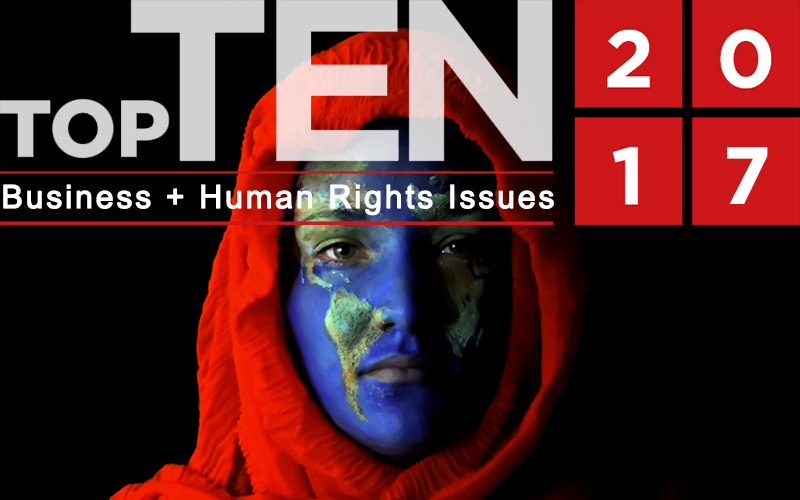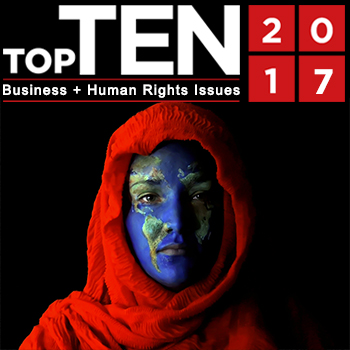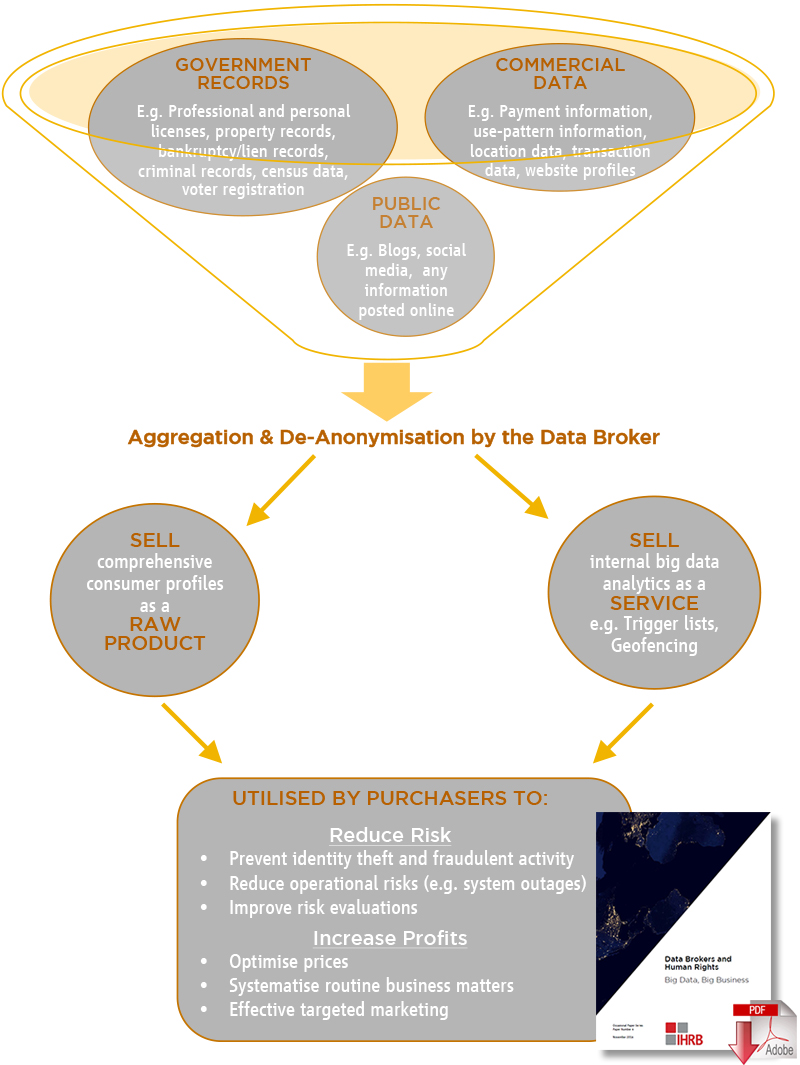International Human Rights Day 2016: Top 10 Business & Human Rights Issues for 2017

Marking International Human Rights Day today, the 10th of December 2016, the Institute for Human Rights and Business has published the seventh annual list of the Top 10 Business & Human Rights Issues for the forthcoming year.
The human rights challenges expected in 2017 reflect a stark shift in social, political and economic drivers at the global level.
At risk is the erosion of an international system upholding human rights protections and the rule of law, which could impact societies, economies, and businesses.
The human rights movement faces a difficult future in 2017, and it is up to all actors - civil society, governments as well as businesses - to champion the issues people care about and make human rights relevant to peoples’ daily lives.
1. INEQUALITY: the business role
As of 2016, the top 1% of the world’s population now owns more than everyone else put together. In the United States, the top 1% secured over half of all income growth since the 2008-2009 financial crisis.
2. GIG ECONOMY: the rise of internet-enabled work
The spread of the Internet and wider use of technology has enabled us to work with a vast number of people in a collaborative way, or what is known as crowdwork. Similarly, we are increasingly able to secure services when needed by using ‘apps’ managed by firms. These new tools of the “gig economy” have made many business processes more efficient and reduced costs.
3. REFUGEES: setting strategies with business
There are more than 65 million displaced people in the world today, the highest number in recorded history. More than 21 million are registered as refugees, who cross international borders in search of safety.
4. TRADE DEALS: upholding human rights in a new era
2017 and beyond looks set to transform the way new economic, trade and investment agreements between nations are negotiated. These agreements set the terms of competition between companies, tax rules, employment conditions, environmental standards, grievance procedures, and more – they set the rules not just for economic activity, but for how people will be affected and treated.
View All SC24/7: Human Rights Articles & White Papers
5. SUPPLY CHAINS: levelling the playing field
Complex value chains are a fundamental feature of the global economy, linking developing and developed economies, raw materials and finished products, workers and consumers. Liberalisation and technological innovations have enabled production processes to be broken down into smaller and smaller components, outsourced to utilise the cheapest labour costs or most advantageous regulations.
6. INFORMED CONSENT: the realm of big data
The principle of “free, prior and informed consent” is an important procedural concept that has long existed in relation to the land rights and cultures of indigenous peoples. The concept, with which the extractive sector is familiar, has since been extended to other communities facing similar pressure, and is coming into focus in sectors such as pharmaceuticals, for example in the context of clinical trials, or ICT, such as the endless consent boxes we all tick when online.
7. FREE SPEECH: responsibility in the age of social media
Media companies – whether within broadcast, print journalism, entertainment, or Internet-based – are at the frontier of the free speech debate. On one hand, they are custodians of journalists’ and others’ right to speak freely and receive information. On the other, they have the power to curb speech of those who do not agree to their terms of engagement, or whose views the owners or editors disagree.
8. CONSTRUCTION WORKERS: building the world's infrastructure
The construction sector is a major employer accounting for approximately 7% of the global workforce. It includes many skilled and unskilled workers who design infrastructure and physically build it, making the industry labour-intensive. Migrant workers are a typical feature of this industry globally as construction cannot be outsourced and delivery of projects in cycles benefits from the ‘short-term’ contributions of migrants.
9. ACCOUNTABILITY MECHANISMS: gaining momentum
The year 2016 saw continuing efforts to strengthen legal accountability for business involvement in human rights abuses. At the international level, in June 2016 the UN Office of High Commissioner for Human Rights submitted the outcome and recommendations from its Accountability and Remedy Project. The report, which was welcomed by the UN Human Rights Council, includes guidance to states for strengthening domestic legal systems for cases of business related human rights abuse.
10. AUTOMATION: preserving workers' rights
The constant and relentless pressure on profit margins is forcing many companies to look at new ways to cut costs. From airline check-in terminals, to sophisticated manufacturing machinery, and robotics in mining, companies are increasingly automating their processes to replace workers. Machines do not take lunch breaks, sick leave or go on vacation, they do not form unions, and they work long hours.
Image Credit: Rebecca Musser - International Human Rights Day
The Data Broker Business Model
Article Topics
Institute for Human Rights and Business News & Resources
Data Brokers and Human Rights - Big Data, Big Business International Human Rights Day 2016: Top 10 Business & Human Rights Issues for 2017Latest in Supply Chain
Baltimore Bridge Collapse: Impact on Freight Navigating TIm Cook Says Apple Plans to Increase Investments in Vietnam Amazon Logistics’ Growth Shakes Up Shipping Industry in 2023 Spotlight Startup: Cart.com is Reimagining Logistics Walmart and Swisslog Expand Partnership with New Texas Facility Nissan Channels Tesla With Its Latest Manufacturing Process Taking Stock of Today’s Robotics Market and What the Future Holds More Supply Chain














